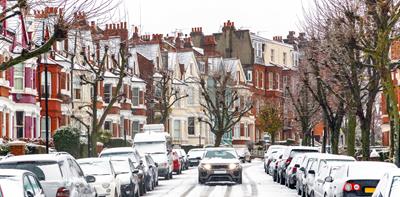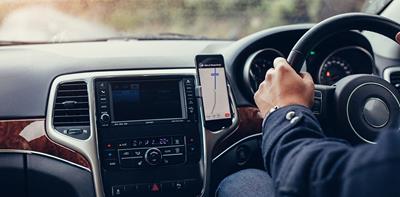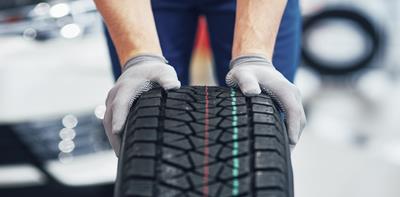
Do you leave the car engine running while you defrost your windscreen in the winter? What about while you’re in the car on a hot day and want the sweet relief of the air con?
Many people regularly keep their engine idling, but did you know it contributes to air pollution and drivers can be fined?
EASY AS HACK
Cover the windscreen overnight in winter to avoid the need to defrost it in the morning.
At a glance
- Idling your engine while stationary is illegal on a public road.
- Switching off will reduce air pollution and associated health problems.
- You may be fined £20 or up to £80 in parts of London.
What is car idling?
Car idling is when you leave a vehicle’s engine running while stationary.
Common examples of unnecessary car idling are leaving the engine on while waiting to pick up children from school and starting the car on a driveway before heading back into the warmth while the windscreen defrosts.
Is car idling illegal?
Yes. Leaving your engine idling while stationary is illegal on a public road. The Highway Code states: ‘You must not leave a vehicle’s engine running unnecessarily while that vehicle is stationary on a public road.’
Can I get a fine for car idling?
Idling your engine can come with a fine of:
- £20 outside London (£40 in Brighton )
- This can go up to £80 in parts of London
The fine applies if an official asks you to turn your engine off and you refuse. Rates of enforcement for engine idling are currently low, but this could increase with rising concerns about air pollution. Some councils have been pushing for stricter rules on idling, including instant on-the-spot fines.
Is it illegal to leave a car idling on your driveway or private property?
There are some exceptions and qualifications to the law regarding car idling. The law only applies on private roads. It is not illegal to leave your car idling in specific circumstances, such as on your driveway or private property like a supermarket car park.
However, it’s a good idea to get into the habit of turning your engine off while you wait. It means you’re more likely to remember to turn the engine off on public roads, saving you from a potential fine, and you help the environment by reducing pollution.
Why is idling bad?
Running engines emit fumes. In some cases, cars can pump out almost twice the emissions while stationary as they do while in motion. Emissions such as nitrogen oxide, sulphur dioxide and fine particulate matter significantly contribute to poor air quality.
In the UK, air pollution is the largest environmental risk to health and life expectancy. It contributes to health problems like asthma, lung cancer and heart disease. It’s thought that human-made air pollution causes between 28,000 and 36,000 deaths a year. According to Transport for London, over half of the capital’s air pollution is caused by polluting vehicles, such as cars.
The health problems caused by air pollution also disproportionately affect groups in our society, such as black and ethnic communities and children. A high-profile campaign for cleaner air followed the death of nine-year-old Ella Kissi-Debrah, in which air pollution was cited as a cause of death.
As well as causing a risk to people’s health, idling also:
- causes dirty spark plugs
- wastes fuel
- pumps pollution back into your car
Should I leave my car running while stuck in traffic?
If you have a modern car, there’s a good chance it’s already fitted with a ‘stop-start’ system. The engine cuts out when the car’s at a standstill, so you don’t need to worry about idling. Just be aware that the system will fire up again when running many items like heated seats, windscreen demisting and a charger. And, although car manufacturers allow drivers to switch off these systems manually, it’s advisable not to.
It’s also an urban myth that turning your engine on and off will run your battery flat, even if you’re caught in stationary traffic. The system will automatically restart the engine before the battery runs out. The Energy Saving Trust says: “Many newer cars automatically turn off when stationary in neutral. If yours doesn’t, turn off your engine if you’re going to be stationary for more than a minute.” It’s best not to do this too often if you have an older vehicle, however, or a battery that’s more than five years old. Your car may struggle if you switch the engine off and on again too frequently, especially in cold weather.
How to avoid engine idling
To get into the habit of turning your engine off while your car is stationary, here are a few things you can do:
- Plan to reduce waiting time at your destination. Your friends or teenagers may need to break the habit, too!
- Cover the windscreen overnight in winter or some de-icer and a scraper instead of turning on the engine.
- Dress for the weather and keep warm clothes, a battery-powered fan and a bottle of water in the car.
- Consider your likely wait time in stationary traffic – turn off your ignition if it looks like it’ll take at least two minutes for traffic to move.
- Turn your car’s stop/start mechanism on if it’s not already. Most newer cars have this feature.
- Keep your phone charged – so you’re not relying on the car engine to charge it when it runs out.
- Warm up your engine while driving – it’s quicker, and modern vehicles do not need a warm-up. Just avoid revving the engine too much as you ease into your drive.
For more handy motoring tips and guides, go to Solved.
You can find out more about our car insurance here.
Original article written Nov 2021, updated May 2024.
* NB You are not insured if you have left your keys in the vehicle, always check your policy booklet.


